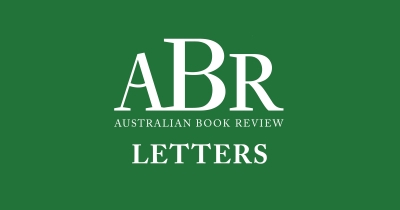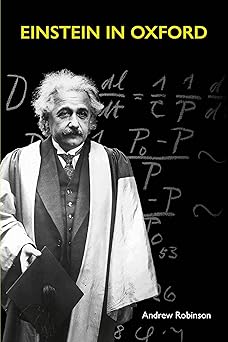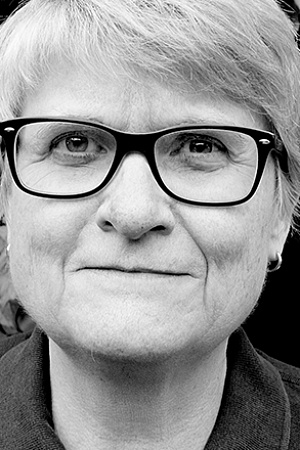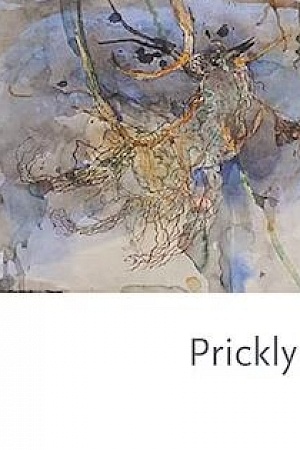An interview with Andy Jackson

Andy Jackson is a poet, creative writing teacher, and a Patron of Writers Victoria. He was the inaugural Writing the Future of Health Fellow, and has co-edited disability-themed issues of Southerly and Australian Poetry Journal. Andy’s latest poetry collection is Human Looking (Giramondo, 2021), which won the ALS Gold Medal and the Prime Minister’s Literary Award for Poetry.
Which poets have influenced you most?
I’ve been shaped and invigorated the most by three poets – Sylvia Plath, Gregory Orr, and Adrienne Rich. From them I’ve tried to learn the power of harnessing an intensity of affecting, musical language to an intelligent solidarity.
Are poems chiefly inspired or crafted?
For me, they are always both (or neither). Every poem I write is written out of a kind of urgent need. But they never arrive complete: poems are a wrestling (or reconciliation) between immersion and detachment.
What prompts a new poem?
The inability to absorb or let go of an experience, feeling or thought, and a suspicion that there might be a voice that could hold it, a vessel which could be useful in some way.
What circumstances are ideal for writing poetry?
I’m tempted to say oppression, but that would be wrong. The quip ‘at least you’ll get a good poem out of it’ is too facile – suffering can take language away from us. What poetry actually requires is spacious time – the ability to allow the complexity of a situation to find its right shape.
Roughly how many drafts do you produce before ‘finishing’ a poem?
Early in my poetry writing life, I’d write ten or twenty different drafts. Now it’s half a dozen or so. I’m growing to accept, and appreciate, the seemingly imperfect. Being human is messy. Form always relies on deformity.
Which poet would you most like to talk to – and why?
I always love talking with other disabled poets. There’s less that needs translating.
Do you have a favourite Australian poetry collection?
Not of all time. For me, Australian poetry is so dynamic and vast (and my reading so partial), especially these days, that I can only feel comfortable saying ‘recent favourite’. That would be Alison Whittaker’s Blakwork.
What do poets need most: solitude or a coterie?
Either, but only if it reaches for the other. For me, I need solitude, but the kind of solitude that wants to connect with others. Other poets, I suspect, will need a crowd of affinity, along with the urge to retreat.
Who are the poetry critics you most admire?
I’m really uncomfortable with the word ‘critic’, which to me smacks of judgement, hovering overhead. I prefer engagement, owning up to being embodied and particular. In terms of writers on poetry, recently I’ve loved the essays of Prithvi Varatharajan, and the book Visceral Poetics by Eleni Stecopoulos.
If Plato allowed you to keep one poem or poetry collection in his Republic, what would it be?
I would intensely resent him for such a brutal limit. Part of the value of every poem is how it relates to the others. So, I’d have to pick the most capacious anthology I could find. Considering the ones on my shelf, that would be either Beauty is a Verb or The Rattle Bag.
What is your favourite line of poetry?
‘Without tenderness, we are in hell’ (Adrienne Rich, from ‘Twenty-one Love Poems: X’).
How can we inspire greater regard for poetry among readers?
I don’t think we need to burden poetry with a marketing strategy. I think of poetry as being as diverse (and as potent) as music. Not everyone likes free jazz, or hyper pop, or ambient, but everyone likes something. What will ‘inspire greater regard for poetry’ is readers being able to find the poems that move them. This means making poetry accessible, i.e. published, available, in many formats. Australia having a Poet Laureate should help.

 RAI.jpg)







Leave a comment
If you are an ABR subscriber, you will need to sign in to post a comment.
If you have forgotten your sign in details, or if you receive an error message when trying to submit your comment, please email your comment (and the name of the article to which it relates) to ABR Comments. We will review your comment and, subject to approval, we will post it under your name.
Please note that all comments must be approved by ABR and comply with our Terms & Conditions.